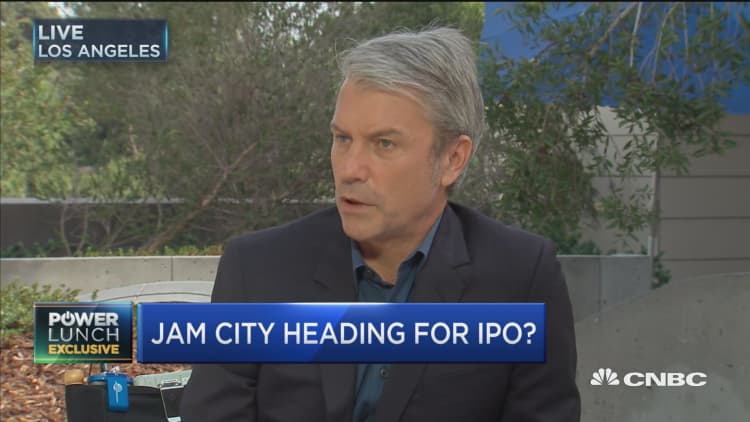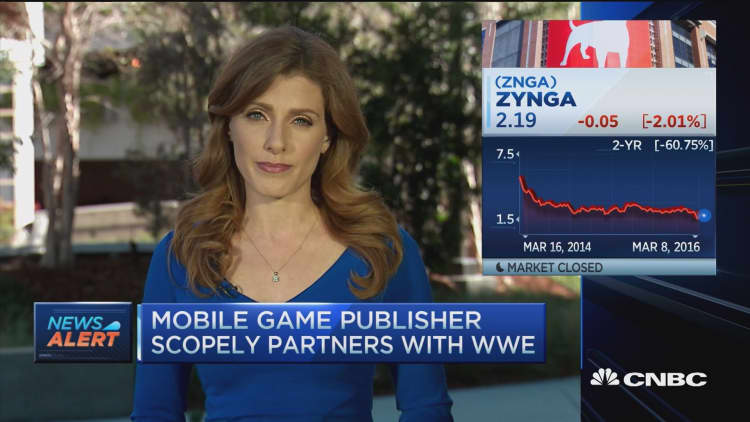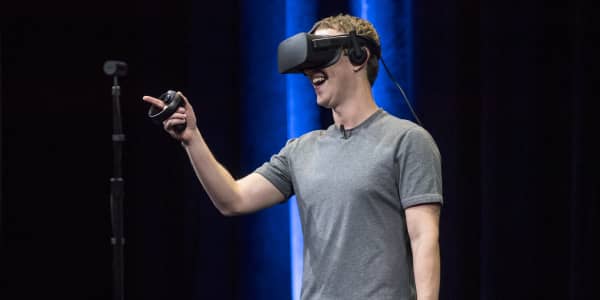
Now that Chris DeWolfe has built a mobile game company with several of the 100 top grossing titles and $400 million in annualized revenue, he's finally ready to change the brand.
Out with SGN. In with Jam City.
The new name makes a lot more sense. Among the Los Angeles-based company's popular games are "Cookie Jam," "Juice Jam" and "Panda Jam."
DeWolfe compares the creative process of game development to that of musicians engaged in improvisational jamming.
"We're catching up with the culture of our company and the types of games we've been making," said DeWolfe, who previously co-founded MySpace and helped orchestrate the 2005 sale of the social network to News Corp. "Jam City sounded like not only a fun name but has multiple meanings for us as a company."
DeWolfe says the name came to him two years ago on a flight back from the East Coast with a number of company executives. At a meeting during their travels, someone referred to the company as SNG or GSN, DeWolfe recalls, and it wasn't the first time.

SGN, which stands for Social Gaming Network, is a name that DeWolfe inherited through an acquisition he made in 2011 as he was in the early days of piecing together assets to create a mobile game company. He bought SGN from venture capitalist Shervin Pishevar, co-founder of start-up Hyperloop One.
Eager to make a change, DeWolfe and his colleagues got to work on the trip home.
"We started riffing about the name 'Jam City' on the the plane," DeWolfe said. But for such a big decision, "we couldn't just go with the first name that came to us."
So SGN hired a brand-naming agency to work with its own marketing department, going through at least 500 names. Of the three to four finalists, none of them performed as well in surveys as Jam City.
So as of Thursday, Jam City is now SGN's new name, though there's still a fair amount of legal and clerical work required to make it all official.
We only make games where we really understand the genre.Chris DeWolfeCEO, Jam City
With five titles having cracked the top 100 by sales, Jam City has overcome the biggest challenge in game development — repeat success. Aside from well-known companies such as Supercell, Electronic Arts, King.com and Zynga, most successful games are one-hit wonders, with the developers never finding another title that breaks away from the pack.
Getting consumers hooked on apps is difficult enough. Producing a second title and then a third and fourth that also engage users and do so profitably without siphoning too much traffic from previous games requires the right mix of product development and business smarts.
Jam City's casual games are free to play and generate money through in-app purchases such as additional lives, advanced features and more moves. The company's most popular title currently on Apple devices is "Panda Pop," which requires the user to play the role of an animated panda popping balloons of like color to get to the next level.
Puzzles and bubbles are a model that's working for Jam City. The company is growing an average of 70 percent a year and expects to hit $400 million in sales over the next 12 months.
"We only make games where we really understand the genre," DeWolfe said.
In addition to new titles, Jam City has room to grow through new revenue streams, namely in-game advertising. That's the way that many games make money, but DeWolfe has avoided advertising until he's confident it doesn't hurt the user experience.
He's been experimenting with advertising in certain games and plans to turn on ads late this year, expecting that they could add 20 percent or more to the company's revenue. Movie releases, other game developers and consumer packaged goods companies are some of the types of brands that are likely to promote their products in Jam City games, he says.
Video ad platform Vungle has been working with SGN on testing its own advertising products and seeking feedback. Vungle's technology is designed to make video ads immersive rather than disruptive, incentivizing users to watch clips in return for currency that can be used in games.
Vungle CEO Zain Jaffer is confident ads will work for DeWolfe's games.
"There's a ton of opportunity for them to exploit here," he said. "Many companies that have historically been anti-advertising are now suddenly making the shift."
The primary focus, though, is on continuing to crank out popular games. SGN raised $130 million last year from South Korean game publisher Netmarble Games and used some of that cash in July to purchase TinyCo, the developer of "Marvel Avengers Academy."
DeWolfe is eyeing five new game releases next year and has plans for a game based on "Peanuts," the comic strip from Charles Schulz.
"We're going to further accelerate growth and move into different genres," DeWolfe said. In a mobile games market that's expected to top $40 billion next year, Jam City is seeking "greater market share in a growing market."





